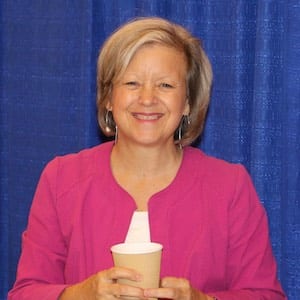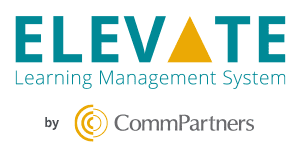
With a mission of improving quality of life and engaging minds, the Osher Lifelong Learning Institutes (OLLI) provide a distinctive array of lifelong learning opportunities and activities specifically developed for seasoned adults who are interested in learning simply for the joy of learning. And as the director of the Osher Lifelong Learning Institute at Duke University, Chris McLeod leads one the top ten largest Institutes in the country (there are over 120 nationally), which are all associated with universities and colleges.
In this episode of the Leading Learning podcast, Jeff talks with Chris about the general commonalities of the learners they serve and the opportunities and challenges that come with serving them. They also talk about the role of membership in OLLI’s business model and the factors that tend to underpin the success of the most successful programs.
To tune in, just click below. To make sure you catch all of the future episodes, be sure to subscribe by RSS, Apple Podcasts, Spotify, Stitcher Radio, iHeartRadio, PodBean, or any podcatcher service you may use (e.g., Overcast). And, if you like the podcast, be sure to give it a tweet!
Note: Chris McLeod has been back on the Leading Learning Podcast since this interview aired. Be sure to also check out “Lifelong Learning Through COVID with Chris McLeod.”
Listen to the Show
Read the Show Notes
[00:18] – A preview of what will be covered in this episode where Jeff interviews Chris McLeod, director of the Osher Lifelong Learning Institute at Duke University.
About OLLI
[02:08] – Introduction to Chris and an overview of Osher Lifelong Learning Institute (OLLI) and her role there.
Chris shares that there’s a network of 123 OLLIs in the country and they were each endowed by philanthropist and lifelong learning advocate, Bernard Osher with the Bernard Osher Foundation. Most of the OLLIs have an endowment of $1-$2 million, which is a key cornerstone of the financial pro forma of these programs. She says Duke ranks seven or eight in terms of the top ten largest with about 2,400 members.
OLLIs offer non-credit courses, mostly to mature learners, although at Duke, they do not have an age restriction around that—anybody of any age can take their courses. They are usually affiliated in continuing education programs of colleges and universities.
Chris shares she joined OLLI at Duke in June 2018 with a prior background in fundraising and development. She says they’ve been at capacity in terms of enrollment for several years so their intention is to locate a new facility and expand their classroom offerings.
[05:11] –It’s my understanding there are more than 120 of these institutes across the US, with one in every state, including the District of Columbia. Is that correct?
Chris says that is correct and in NC they’re fortunate to have four. She notes it’s important to understand that each institute is very different when it comes to culture, course offerings, and programs.
For example, NC State has a very robust program but they tend to have more a la carte single presentation programs with some 3-6 week long courses. Whereas Duke and UNC Asheville are recognized for having longer courses (9-12 weeks).
OLLI Members
[06:24] – You said you don’t have an age restriction on your learners but OLLI in general tends to focus on older learners, over the age of fifty. Aside from dropping the usual emphasis on tests and grades, how do you find teaching and engaging with learners in this age group to be different from teaching and engaging with younger learners?
The feedback Chris says they get from instructors is that they love their students because of their level of enthusiasm, level of engagement, and the questions they ask in class. They have about 3-4 instructors who teach at the university level but who also teach for them for free, simply because they love their students. She says the best part about what’s offered is they don’t have to guess what they want—their members let them know (very clearly) the types of classes they want.
They also have a 30-member curriculum committee that is completely responsible for sourcing all of their instructors and navigating them through the course proposal process. They teach about 400 classes a year and it is all done by volunteers in response to what members ask for. It’s noted the Durham area in particular has an advantage because it’s located in the Research Triangle with about five or six nearby universities so there’s a generous pool of faculty.
[09:05] – You mentioned your students tend be engaged, ask questions, and let you know what they want. But are there other commonalities you see among the types of people who tend to be attracted to your programming?
Chris points out there’s no prerequisites, people just need to come with a spirit of curiosity. They do see a lot of hunger for humanities, among both men and women. They also have a pretty robust science offering. But the most interest tends to be in the arts.
Essentially, people seem to be interested in exploring what maybe they didn’t have a chance to explore when they were in school. So it really is about the joy and love of learning. Their members are incredibly vibrant, enthusiastic, and passionate.
Sponsor: CommPartners
[11:33] – If you’re aiming to build a vibrant, enthusiastic, passionate community of learners online, we encourage you to check out our sponsor.
CommPartners helps learning businesses conceive, develop, and fulfill their online education strategy. Their solutions begin with Elevate LMS, an award-winning learning platform that provides a central knowledge community and drives learner engagement. To extend the value of Elevate, CommPartners provides a wide range of online education services including curriculum design, instructional design, fully managed Webinars, Webcasts, livestream programs, and virtual conferences.
Role of Membership in OLLI’s Business Model
[12:24] – You regard the participants in your programs as not just students, but members. Why is the concept of “membership” an important part of the OLLI model?
Chris explains that it’s a key ingredient to the financial pro forma of OLLI. One of the things Mr. Osher was very thoughtful about was there are four legs/financial pillars to OLLI: membership, course fees, the ability to raise money from your members for specific efforts, and an endowment provided by the Bernard Osher Foundation. Having these four streams of revenue helps to keep the program very stable and the fundraising is really the margin of excellence.
At OLLI they talk a lot about the importance of a learning community and for people to feel safe, welcome, and affirmed, despite what their backgrounds are. They also talk a lot about the importance of respect, civility, a balance of perspectives, kindness and compassion, and what’s truly required to have a learning community.
And while there may be variances in what their course offerings and activities look like, this notion of community and face-to-face connection is really a universal theme in all the OLLIs.
[15:26] – My understanding is that individual OLLI programs have to demonstrate a certain level of success in order to receive funding from the Bernard Osher Foundation. What do you see as some of the characteristics of the most successful programs?
Chris explains that the funding is typically based on the level of membership. Early on organizations had to have a threshold of 500 to even be considered to an early grant, which was usually several hundred thousand dollars. Over time, to reach a million dollars you had to have membership of 1,000 individuals. Their program is fortunate being located in an economically vibrant community with outstanding medical facilities and a great climate.
What makes a huge difference is how well the programs are able to really channel the energy and efforts of their volunteers. Chris notes most of them are located in continuing education, which at a leading university, is often not a high priority in terms of funding or strategic support. But they are member-funded and supported and don’t rely on Duke for any resources. The program is run with only 2 full-time staff (and several part-time staff at some of their classroom facilities) but they have over 560 volunteers who are engaged in really meaningful roles—300 of those are instructors.
[18:03] –The Osher Lifelong Learning Institute at Duke University is what we would characterize as a learning business. That is, you market and charge fees for the learning experiences you deliver. What challenges or constraints do you encounter in operating as a business? What tends to work well when it comes to attracting people to become OLLI members?
Chris reiterates how fortunate they are to be located in such an economically vibrant community. Some of the challenges she says, are that you’re working with people in a life stage who are really vibrant and engaged—until they aren’t and something happens, particularly with their health.
Their biggest challenge is really managing the growth. They are currently teaching in 23 different facilities in 4 counties and many of Chris’ peers have much larger staffs, programming one large facility. So space and staffing are huge challenges but she says they’re making some huge headway on that. Their university has an increasingly stronger understanding of what they have to offer the larger university community so she thinks they’ll be making some progress there.
Another challenge she’s experiencing as a new director is that she’s always worked with sophisticated donors in her fundraising career but the level of engagement, which is often the source of strength, can also be a challenge. This is because you’re trying to make decisions for a learning community of 2,400 members but if you’re not careful, three or four want to drive the whole ship.
Managing a variety of cultural norms around communication is another aspect to her role. Making sure their classrooms continue to be places where people can have robust debates about issues and still feel safe and respected is something Chris feels a great deal of responsibility for ensuring the continuation of.
Continuing Education Becoming Higher Priority for Universities
[22:01] – Continuing education departments tend to be the stepchild of big universities. But I feel like major universities are tuned in more to this older audience and making this more of a higher priority. Do you sense that as well?
Chris agrees that continuing education does seem to be becoming a higher priority and how even at Duke there’s been an effort to basically re-envision continuing education. It is a profit center in a lot of universities. It’s also a way of staying engaged with your alumni, which is important from a development/fundraising perspective as well as the vibrancy of the alumni body to support student’s internships and extracurricular activities.
Chris also sees a lot of freedom in continuing education and how at every professional school at Duke there are continuing education efforts. What is unclear down the road is what will happen if there’s some effort to try and bring those together to share resources, something she says is already happening at other universities.
She adds that the majority of OLLIs are really focused on in-classroom, in-person learning. There is some experimentation and conversation going on about ways they can broadcast what they’re already doing but she says that’s a pretty nascent effort nationally.
Sponsor: AUTHENTIC Learning Labs
[24:21] – If your learning business is committed to experimenting and analyzing the results to find out what really works, be sure to check out our sponsor for this quarter.
AUTHENTIC Learning Labs is an e-learning company that offers products and services to help improve your current investments in education. One key product is Authentic Analytics, a dedicated suite of visualization reports to help analyze and predict the performance of education programs. Organizations use Authentic Analytics to easily scan through volumes of data in intuitive visuals, chart performance trends, and quickly spot opportunities, issues, and potential future needs.
On the Horizon for OLLI at Duke
[25:15] – I know you’re wrestling with space issues and distance learning would be an obvious way to have more capacity and it sounds like you’re in the early stages of at least thinking about that. Are there any other big plans that you have in the coming one to five years for new approaches you’re going to take or new things you’re going to be doing?
Chris stresses that the building is really the number one priority because of their constraints. She says one thing that’s interesting nationally is more baby boomers are aging alone than any other time in history so there’s a real hunger for face-to-face connection. And in seniors it has a huge impact on their health and mortality. So they are really focused on creating space where their members can be together.
Over time this idea of distance learning will become more of a priority but they are currently serving people now who are healthy enough to get in a car and drive to one of their classroom sites. She thinks down the road however, that retirement communities/continuing care retirement communities (CCRCs) will want the ability to broadcast to a single classroom where people could be face-to-face but they wouldn’t have to get on the interstate and drive to take one of their classes.
They already have people who are experimenting with some videotaping and even podcasting so Chris expects their members will help them at least launch that effort. And one of the things they have yet to test is whether people who are familiar with a particular professor may be interested in just hearing the audio of a class—but they have to figure that out.
Chris talks about how a nice benefit of being a part of OLLI is how they can share resources with each other. And they’ve been talking about developing an app to help their members understand what’s being offered/social events to stay more in touch with what they’re doing. So the shared resources as well as the colleagueship are really extraordinary. They have the OLLI National Resource Center at Northwestern with monthly webinars on a variety of topics and planned conferences every 18 months. Chris emphasizes just how helpful this has been as a resource.
[31:26] –What is one of the most powerful learning experiences you’ve been involved in, as an adult, since finishing your formal education?
Chris shares about how her experience caring for her mother during a health challenge and how it made her more compassionate and understanding, particularly with the members at OLLI. It also taught her the importance of being present and listening. And it helped her understand the importance of learning to receive support.
[34:54] –How to connect with Chris and/or learn more about OLLI at Duke University:
- The Osher Lifelong Learning Institute at Duke University Website: https://learnmore.duke.edu/olli
- Call OLLI to request a catalog: 919-684-2703
[36:29] – Wrap-Up
If you are getting value from the Leading Learning podcast, be sure to subscribe by RSS, Apple Podcasts, Spotify, Stitcher Radio, iHeartRadio, PodBean, or any podcatcher service you may use (e.g., Overcast).
We’d also appreciate if you give us a rating on Apple Podcasts (formerly known as iTunes) by going to https://www.leadinglearning.com/apple. We personally appreciate your rating and review, but more importantly reviews and ratings play a big role in helping the podcast show up when people search for content on leading a learning business.
And we would be grateful if you check out our sponsors for this quarter. Find out more about AUTHENTIC Learning Labs and CommPartners.
Finally, consider telling others about the podcast. You can send a tweet by going to leadinglearning.com/share. You can also Like us on Facebook at facebook.com/leadinglifelonglearning and share us with others there. However you do it, please do help to share the good word about the podcast.
[38:20] – Sign off
See Also:




 Revisiting Adult Learning Theory
Revisiting Adult Learning Theory
Chris,
I am looking forward to exploring more about Olli at Duke! So grateful for the work put into expanding educational opportunities for those of us who are still living active engaged lives and want to make the world a better place!